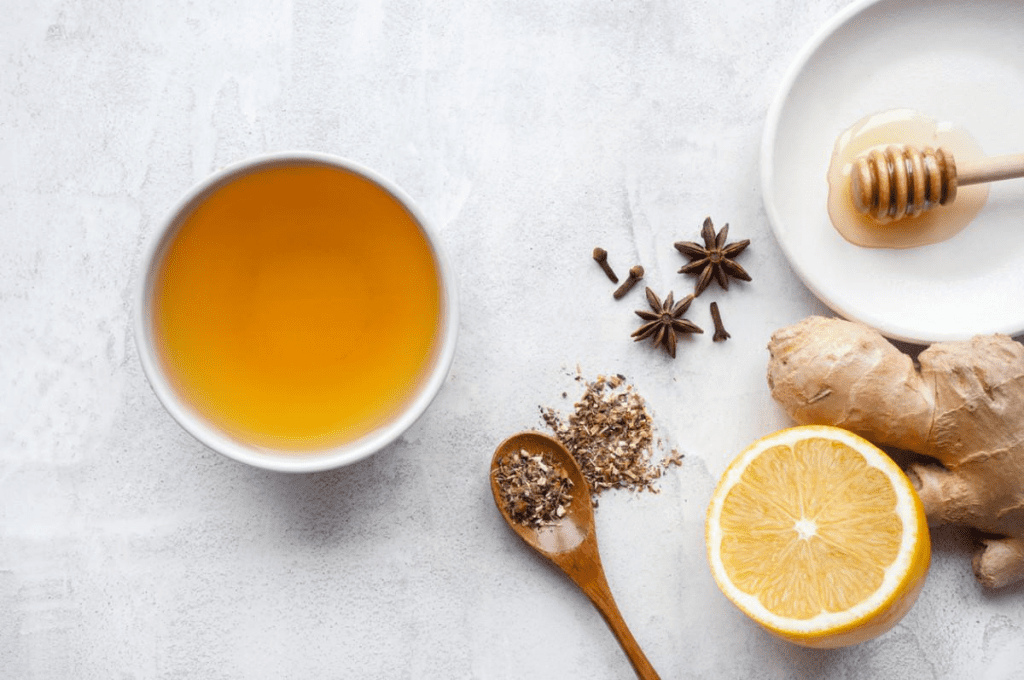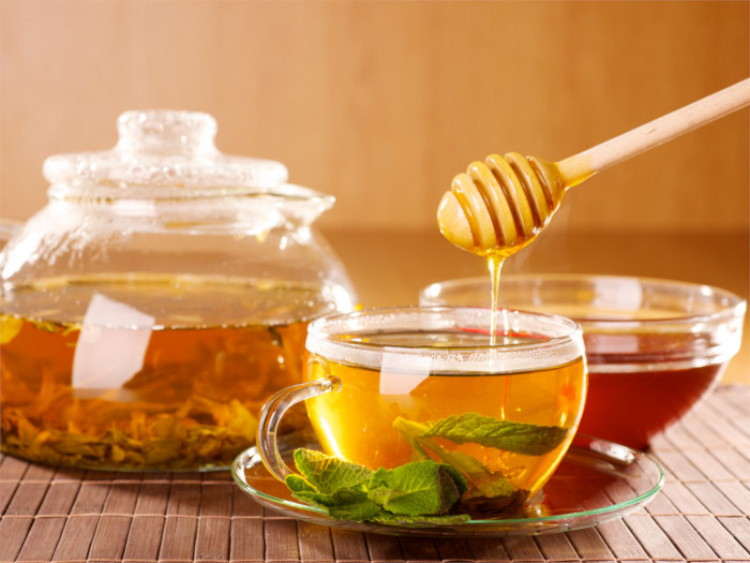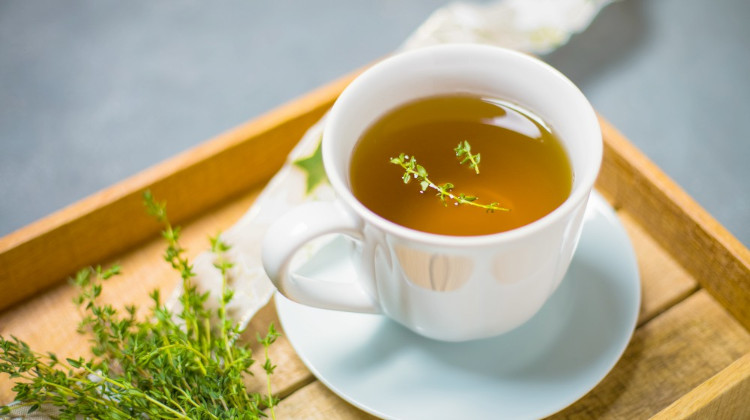Bronchitis can be uncomfortable and even painful. During a bout of bronchitis, the bronchial tubes become inflamed, swell and create excess mucus. This causes the most common simple-to-spot symptoms of bronchitis: a sore throat, chest congestion, and cough. Finding a treatment to ease the pain and discomfort, as well as shorten the duration of the infection, isn’t so simple. The symptoms can take weeks to go away, but there are ways to treat your bronchitis naturally. There are also healing herbs that can be used to boot the natural remedies for bronchitis. These herbs work in many ways, from boosting the immune system to relieving painful symptoms to soothing a cough.
At some point in time or the other, most of us have suffered from a typical cough. However, when severe symptoms like breathlessness and phlegm accompany this simple cough, it results in a respiratory disease known as bronchitis. A cold or flu further weakens the immune system, and individuals are then at a higher risk of developing bronchitis. Chronic bronchitis, if not treated, can lead to asthma and COPD (chronic obstructive pulmonary disease), which could be life-threatening. Like most other diseases, bronchitis, too, can be classified into acute or chronic. It is the swelling or inflammation in the bronchial tubes, which carry air between the lungs, mouth, and nose. Those suffering from bronchitis have great difficulty in inhaling oxygen into the lungs. Inhaling toxic fumes and air that contains dust is a common cause of bronchitis. Inhaling polluted air can be worse for those patients who are living with bronchitis.

Smokers are at a higher risk of developing this disease; smoking is considered the primary cause of bronchitis. This is because cigarettes contain innumerable chemicals, and when individuals inhale these chemicals, they irritate the lining of the bronchial tube or lining. This is when chronic bronchitis develops. Smoking causes the cells to produce more mucus than usual, causing inflammation of the bronchial tubes. This mucus further can blanket the whole lining of the bronchi leading to the accumulation of dangerous bacteria causing bronchitis. This worsens the condition of the individual suffering from bronchitis. Symptoms of bronchitis include Dry cough or phlegm, shortness of breath, fever, and fatigue too.
7 Best Tea for Bronchitis: 2021
Make a tea infusion of them to relieve the effects of bronchitis. Checkout these 7 tea preparations that can minimize your bronchitis.
1. Pepper tea for Bronchitis

Pepper has anti-inflammatory properties that provide relief in the case of swollen bronchial tubes. Kali Mirch is beneficial to help get rid of nasal congestion. Long pepper or commonly referred to as pipli, is known widely for its anti-inflammation properties. Ayurvedic experts suggest mixing all three ingredients (Saunth (dry ginger), Kali Mirchi (black pepper), and Pipli (long pepper)) in a powdered form, along with honey and drinking the mixture 3 times a day for instant results.
Eat chillies, spicy salsa, or dishes flavored with cayenne pepper. Fiery foods thin the mucus in your lungs, thereby helping you to cough more productively.
2.Ginger tea for Bronchitis

Some researchers have found evidence that ginger can have an anti-inflammatory effect against respiratory infection. You can take ginger in several ways:
- Chew dried, crystallized ginger.
- Use fresh ginger to make tea.
- Eat it raw or add it to food.
- Take it in capsule form as directed.
It’s safest to use ginger in a natural form rather than in capsules or supplements. You may be sensitive to ginger, so take it in small amounts if you’re not used to it. Eating occasional ginger is safe for everyone, but do not take ginger as a supplement or medication if you:
- are pregnant or breastfeeding
- have diabetes
- have heart problems
- have any type of blood disorder
3. Turmeric tea for Bronchitis

Turmeric is a spice often used in East Indian foods. A 2011 study found turmeric provided more anti-inflammatory effects than ginger. Turmeric also increases antioxidant activity. That means it may help reduce irritation and boost your immunity. Curcumin is commonly found in turmeric (Curcuma longa). Turmeric is a spice mainly used in curries. Long used in traditional Asian medicine, curcumin has provenly shown to reduce airway inflammation. A powerful antioxidant, curcumin, may help fightTrusted Source the oxidative stress believed to underlie COPD, also blocking inflammation at the molecular level.
To take turmeric:
- Add fresh turmeric to salads or use it to make pickles.
- Mix 1/2 teaspoon of powdered turmeric with 1 teaspoon of honey to make a paste. Consume the paste 1 to 3 times by adding warm water like tea per day while symptoms last.
- Take turmeric in capsule form as directed.
- Use powdered or fresh turmeric to make tea.
Using turmeric as a spice in food is usually safe unless you are sensitive. Do not use turmeric as a medication if you have:
- stomach issues
- gallbladder issues
- bleeding or blood disorders
- hormone-sensitive conditions
- iron deficiency
4. Honey tea for Bronchitis

Honey has been used as medicine since ancient times. It’s prized for its antibacterial properties. But the main reason honey is a bronchitis sufferer’s friend is that it soothes irritated mucus membranes, and it’s a sweet addition to tea or warm lemon water. Honey has many medicinal properties. Helping a sore throat is one of them. The antibacterial properties of honey can help fight the infection causing bronchitis. The thick coating on the throat offers a palliative measure for the pain and discomfort associated with bronchial problems. Tea with honey is an old classic for treating colds. Mother Nature’s favorite sweetener probably won’t do much to clear your cough, but it can soothe the sore throat that often goes along with it.
Raw honey is an excellent food remedy for bronchitis. Raw honey contains essential vitamins, minerals; honey can be used to treat bronchitis, antioxidants, and enzymes to heal your body from the inside out. This alkaline-forming food stabilizes your immune system, relieves inflammation, and eliminates the allergies that can contribute to bronchitis.
Adding cinnamon to raw honey turns the mixture into a solid anti-inflammatory bronchitis and allergy treatment. Mixing these two typical food ingredients strengthens your immune system and prevents future cold and flu viruses.
5. Ginseng tea for Bronchitis

One particular type of ginseng, called Siberian ginseng, can reduce the time spent fighting bronchitis by as much as 40%. This herb boosts the immune system and helps you fight your infection naturally. Some take it as a preventative measure. In some research, ginseng extract was found to reduce the number of bacteria in the lungs of people with chronic bronchitis who were having an attack of acute bronchitis. Ginseng also has anti-inflammatory qualities, which may help it quell inflammation in the bronchial tubes.
A dated but well-controlled clinical study from 2002 concluded that treatment with this traditional Asian herb was better than a placebo to relieve COPD figments. People taking ginseng found significant improvements in breathing and the strength to perform the exercise, compared to similar subjects who received a different treatment.
Another study examined the effects of a combination therapy, which included ginseng and other Asian traditional healing herbs, versus no treatment at all. In this Chinese study, subjects taking the ginseng-based herbal blend experienced significant improvements in all measures of lung function compared to subjects who received no treatment.
Another study examined all existing evidence regarding ginseng for COPD. The authors inferred that compared to no treatment or treatment with standard medications alone, ginseng offered some additional facilities in quality of life and functioning of lungs among diagnosed people with stable COPD.
6. Thyme tea for Bronchitis

This time-honored culinary and medicinal herb prized for its aromatic oils has an abundant source of antioxidant compounds. A German study trusted Source found that the unique mixture of essential oils in thyme improves the clearance of mucus from the airways in animals. It may also help airways relax, improving airflow into the lungs. Whether this translates to natural relief from the inflammation and airway constriction of COPD remains less clear.
Research has shown that thyme is an effective herbal remedy for bronchitis. According to a German study, cough and mucus production was reduced by over 60% with a combination of thyme and primrose. The best way to use thyme to treat bronchitis is to make tea. Use two teaspoons of fresh thyme and add boiling water. Allow to steep for at least 5 minutes. Sip. Drink twice per day to open airways, decrease cough, and speed healing.
7. Mullein tea for Bronchitis

Mullein tea is a flavored beverage that has been used for years to correct a variety of ailments, including colds, chronic coughs, and asthma. It has a delicate, aromatic taste and is formed from the leaves of common mullein (Verbascum thapsus), a native flowering plant of Europe, Africa, and Asia. It is especially beneficial at relieving asthma, which causes the airway to develop out and results in symptoms like wheezing, coughing, cold, and shortness of breath.
The flowers and leaves of the body are used to heal other respiratory issues, like tuberculosis, bronchitis, tonsillitis, and pneumonia. Mullein is a traditional remedy for respiratory ailments and is used to make expectorant cough syrups. Put 2 teaspoons of dried mullein flowers into a cup of boiling water. Leave to steep for 10 minutes, then strain and drink. You can drink up to 3 cups a day.
Round-up: The Best Tea for Bronchitis?
Bronchitis can be challenging to get rid of, especially if you have a chronic pulmonary condition. These natural treatments for bronchitis can have you breathing easier in a matter of a couple of days and keep you from developing more severe health problems in the future.
Symptoms of acute bronchitis usually resolve within 1 to 2 weeks with home treatment. You should start to feel noticeably better after a few days. A dry cough may last up to a month. Remember:
- Drink plenty of water and warm liquids, and eat healthy foods.
- Rest as much as possible until you feel completely healthy.
- Incorporate as many aspects of a healthy lifestyle into your daily routine to maintain your health.
If your symptoms do not improve with home care, or if you frequently develop bronchitis, see your doctor. You may need more aggressive treatment, or you may have chronic bronchitis.



